Philip Jury – Leathercraft Masterclass
Meet Philip Jury from Leathercraft Masterclass and find out about his passion for leather.
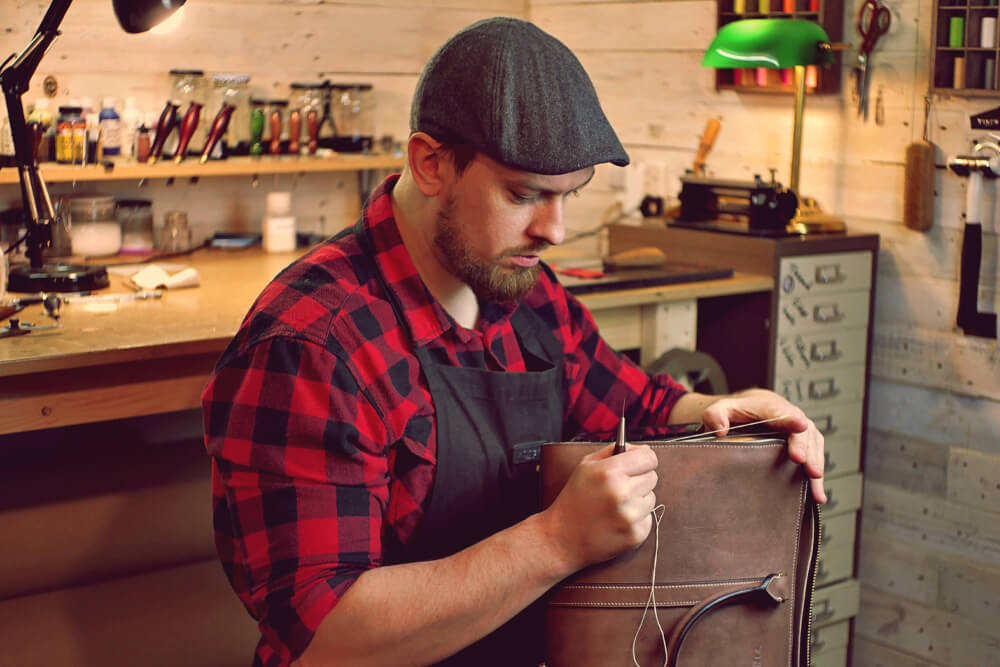
Tell us something more about your background...
I started out when I was younger with a 2 year carpentry and joinery apprenticeship in London. This is where I learnt to work with my hands. I mostly used hand tools, which I much preferred to machines. It gave me a sense of pride to craft something from raw natural materials. From sharpening my tools all the way through to final sanding, I was in love with the process.
However, I always felt wood wasn’t my preferred medium to work with. This got me experimenting with alternatives. Leather was the material that spoke to me the most and it was love at first smell!
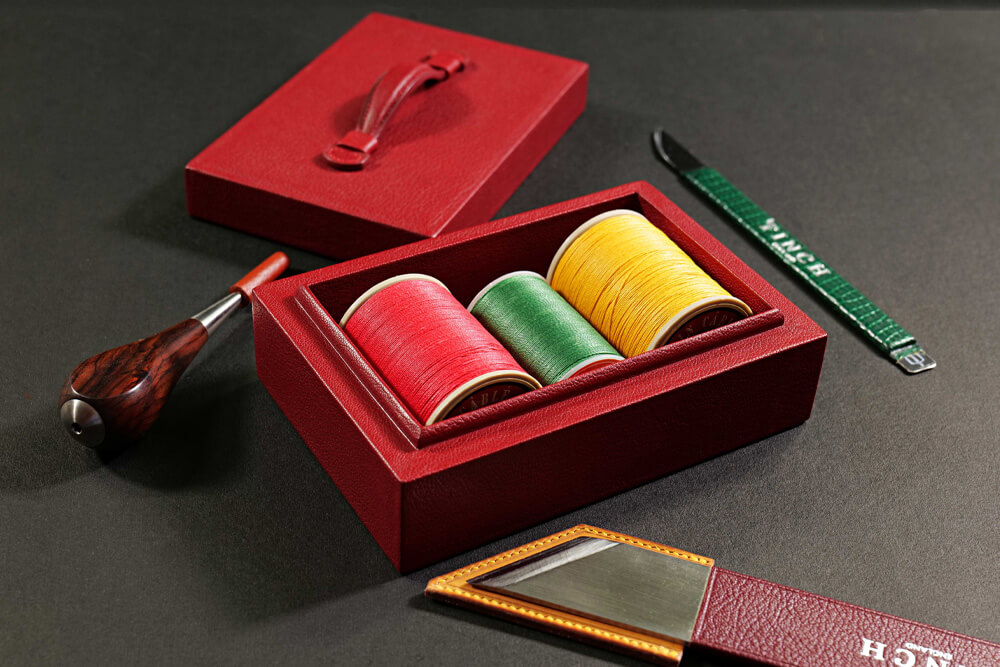
Have you always wanted to become a leather crafter?
Originally the idea was to become a carpenter, so I can’t say leathercraft was always my intention. Luckily leather found me in time. I was able to refocus and use my craft skills to transition.
Did you find a Master leather crafter to know the tricks of this art?
When I first started leatherwork, I was living in Canada. I wanted to make a leather sheath for a handmade knife I had just completed. I found a local store selling leather and hardware and went in with the intention of buying some vegetable tanned leather. I ended up signing up for classes with a local casemaker who was able to show me the ropes and accelerate my learning. It was mostly western style leatherwork, so when I returned home to England I began searching out books and old texts with a focus on English style leatherwork. Eventually I found my style which was early to mid 20th century luxury leather goods.
Who is your target group for your leathercraft classes?
Normally I would say intermediate to advanced leather crafters who want to elevate their skills and discover new techniques, hence the name ‘Masterclass’. However I have just recently launched the ‘Leathercraft Beginner Class’, which goes back to basics and caters for those with zero knowledge, or at least those who are very new to the craft. So now anyone who has a passion for leatherwork can join thousands of other students growing their craft knowledge and confidence.
Do you only do online courses or also in real life in classes?
I used to teach in-person courses, however running an online course business uses up a lot of time. Luckily I love what I do and I can help thousands of people around the world who share the same passion, rather than just one or two people at a time.
Looking at the incredible skills my students have displayed in their work, I can honestly say I couldn’t have helped them more if I was there in person! Between the video courses, email support and of course the Masterclass forum, it has become an information sharing powerhouse.
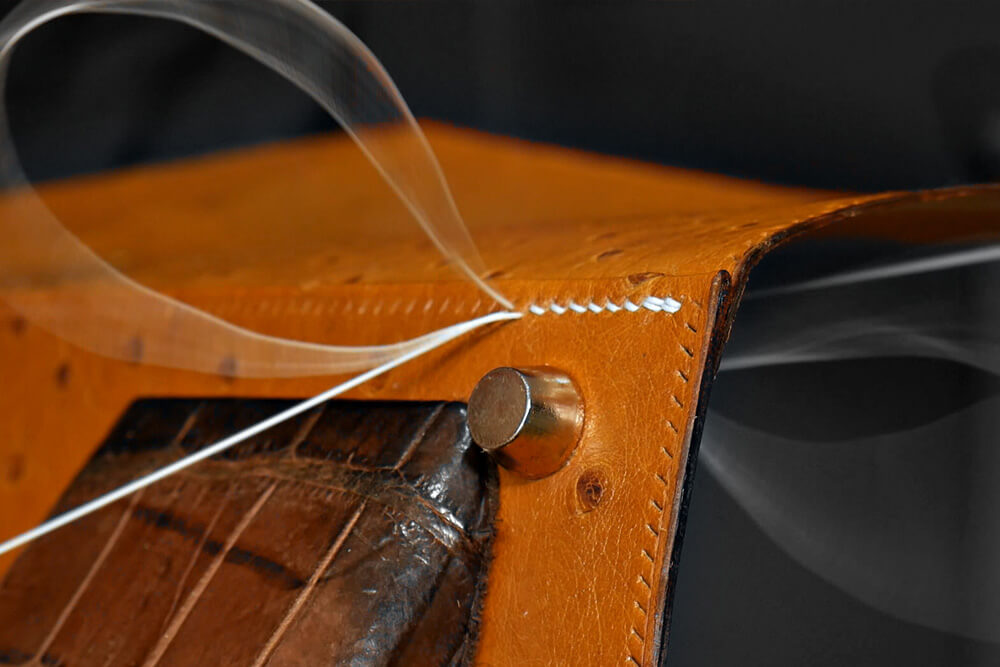
Where do you get your inspiration from for new courses?
There are so many ways to get inspired! Luckily I get a lot of help from students. I have a course requests list where I gather requests and keep them in a spreadsheet, this helps me to see what students really want me to teach them.
I also note what information isn’t on the internet or YouTube. It’s astonishing how much information is online, but there is nothing about how to make luxury jewelry cases, attache cases, framed doctors bags etc, especially the hundreds of techniques that I include in the videos that just aren’t discussed anywhere else.
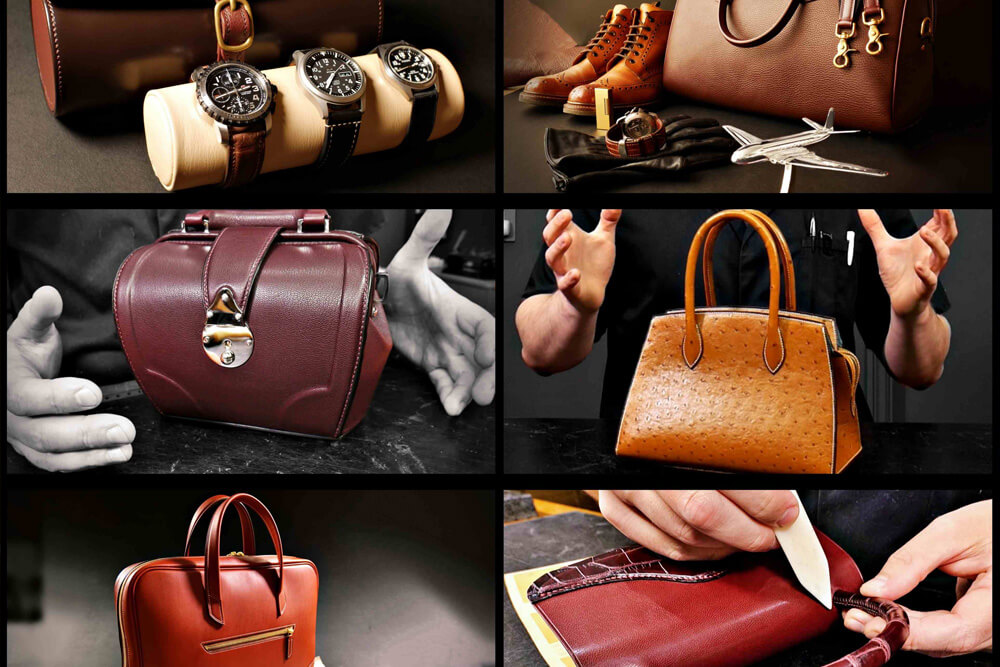
Do you think leather is part of a circular economy?
Pierre-Alexis Dumas, the artistic director of the famous luxury leather goods brand Hermes once said ‘luxury is that which you can repair’. I tend to agree with him in this regard. But the emphasis is on finely crafted luxury leatherwork rather than cheap mass produced products destined to be dumped at the end of it’s (usually short) lifespan. This is why there are beautiful examples of leatherwork still with us from over a hundred years ago. Sometimes all they need is a little love and a couple seams replacing and they are good for decades more.
What do you think consumers like to know about leather and what should a consumer needs to know about leather?
I think consumers generally like to know if their leather products are of a higher quality for what they are paying. This is why we all tend to feel and smell a leather product before purchasing. What they need to know however is what to look out for to prevent them purchasing ‘leather-like’ plastic products with sneaky marketing. Much of this falls to education.
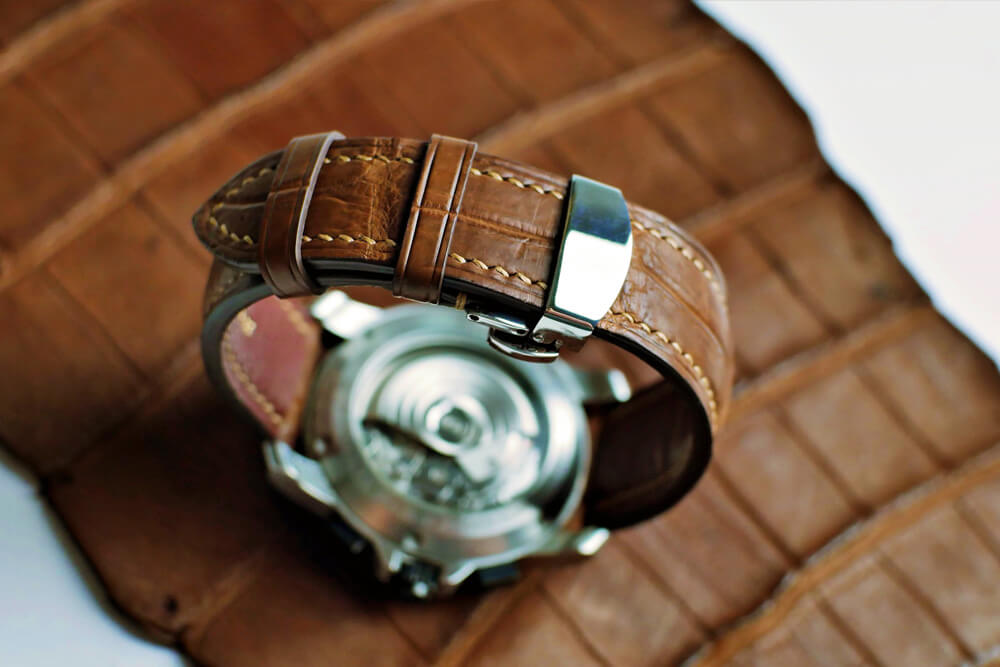
What is your mission?
To help as many people as possible to have fun and become passionate about handmade leatherwork. To bolster and give back to the leather work industry that has given me a passion for it, and to make sure this beautiful craft thrives long after I am gone.
What are your future plans?
I want to open an international leathercraft school run by myself and other masters of leathercraft. That way students can earn qualifications in the industry. This is going to take some time of course!
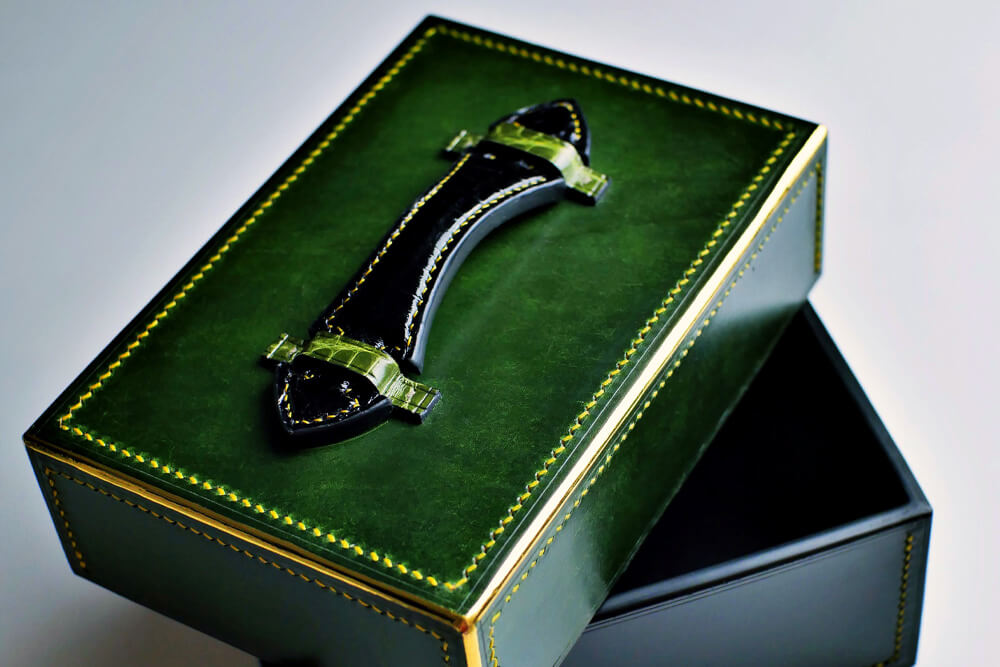
- @leathercraftmasterclass
- @leathercraftmasterclass
- @leathercraftmasterclass
- leathercraftmasterclass.com